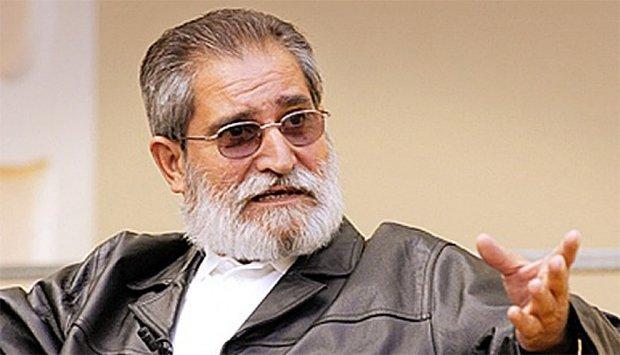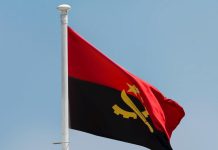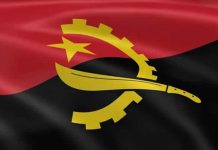Africa-Press – Angola. The awarding ceremony of the title of Doctor Honoris Causa by the Federal University of Rio de Janeiro (UFRJ) to the Angolan writer Pepetela finally took place last Tuesday, 10/25. The decision to grant the title was taken unanimously and by acclamation by the UFRJ Council in May of last year. The argument invoked? For over 50 years at the service of Angolan literature and intellectuals, for his dedication to promoting the Portuguese language around the world, and for being one of the most studied Angolan writers in Brazil and in the world.
The ceremony, broadcast live on Yutoube, where it can still be seen, was beautiful in its simplicity and revealed, among other things, the importance of Pepetela and his work in Brazil, at least in academia. Pepetela’s avant-garde role in the thematic approach of topics “still diffuse” for historians was highlighted, as, for example, according to the question of Professor Mónica Lima de Sousa, from the Institute of History: “It would be possible to be a disbeliever or an atheist in the so- called traditional ⁅ African ⁆ societies ?
The historical aspect of Pepetela’s work deserved a lot of focus, in fact, it is not by chance that the proposal to award the title of Doctor Honoris Causa to the writer was taken to the University Council of UFRJ jointly by the Faculty of Letters and the Institute of History. “Pepetelian history feeds and allows historical writing to be situated in the interstices of the literal and figurative dimensions, as an instigating and essential reading for the reflection of historians in general, and not only of Angolans. In Brazil we owe much to Pepetelian history, to the novels he wrote”, emphasized Mónica Lima de Sousa.
Carmen Tindó, professor at the Faculty of Arts, stressed the fact that Pepetela’s work is widely studied in Brazilian universities, and beyond, with many master’s dissertations and doctoral theses, which makes him “perhaps the most studied Angolan writer and knowledge abroad”.
“To build his novels, Pepetela carries out research, consults primary historical sources and records of Angolan oral traditions. of global transformations. Its narrators, characters and plots are woven by games and strategies of struggles, loves, irony, powers, geographies, historical facts, through which fiction and reality intertwine, critical literary narratives that lead readers to think. For all this and much more, Pepetela deserves the title of Doctor Honoris Causa conferred by UFRJ”, concluded Carmen Tindó.
Helping the country to be free and prosperous
Pepetela’s intervention, obviously, was the most anticipated of the day. He who, as he said, at first wrote for his own pleasure, but later, as time went on, “with the increasingly clear objective of contributing, however little, to the growth and affirmation of Angolan literature, at a of total opposition to the colonial order, the Angolan people seeking independence, it was not a fully conscious choice to deal with themes and characters that fit such an assumption.” At a given moment, Pepetela realized that he could, by writing fiction, help his country to be freer and more prosperous”, which, he stressed, did not always work. “But as with all spells that fail, we can always admit that we are not sufficiently inspired or committed to the task. Or simply something inexplicably was wrongly done, but without jeopardizing the belief in the effectiveness of such magic”, he joked.
Pepetela highlighted the role of UFRJ, and not only, in the dissemination of Angolan literature in Brazil. “When one day the history of how our literature was known in this country is revisited, we will have a greater perception of the effort and generosity of the professors who began to spread the seed throughout Brazil”, said the writer, making a special mention of the professors already the late Maria Aparecida Santili and Fernando Mourão of the University of São Paulo, who inaugurated the studies of Angolan literature in that country.
But, in general, Pepetela extended his tribute to all Brazilian university professors who with “abnegation and effort” dedicate themselves “with affection to a task that today we can call herculean, often with little recognition and insufficient support” from Brazilian institutions. , “but above all the Angolans, who should care more for the role of disseminating national letters and culture”.
At the moment, according to Pepetela, the Brazilian Academy, who studies Angolan Literature the most, is taking into account markers such as the number of postgraduate courses in this field and the number of communications made at meetings and congresses.
In a more erudite record of his communication, Pepetela spoke of the role of the imaginary and of culture in general in the identity emancipation of a people, formed by elements of different origins, as is the case of Brazil. But to explain, the writer went back to Greece in its classical period, where “a fundamental role was attributed by themselves to Literature, whether written and declaimed or theatricalized, as a way of approaching what was distant or at least thought to behave as strange. It didn’t matter what a Greek’s hometown was, he recognized himself in the Illiad and the Odyssey, the literary texts considered primordial and most important of this culture, in particular of the mythology that nourished the Greek identity as a powerful cement”.
Pepetela highlighted the role of journalists and newspapers in the emergence of an Angolan literature, mentioning particularly Joaquim Cordeiro da Mata, as well as, later, António de Assis Júnior.
The author of “Mayombe” ended his speech in this magisterial way: “(…) I would like to remind you that perhaps the book in its current form and material may have its days numbered, as many predict, but the human needs to reveal itself yourself, as well as your fears and dreams. For that, he will always need stories, real or imaginary. Preferably these are always more interesting”.
The writer Pepetela, author of 28 books, was accompanied by his wife and granddaughter at the ceremony. The ceremony was presided over by the acting Rector of UFRJ Carlos Leão Rocha. Among the authorities present, the Angolan ambassador Florêncio Mariano Almeida stands out, as well as the consuls of Cape Verde, Portugal and Belgium. Presence also noted were that of the recently distinguished with the Camões Prize for Literature, the Brazilian Silviano Santiago, and the Angolan academic and writer Jonuel Gonçalves. Another equally noticeable presence, but in a virtual way, is that of the writer Manuel Rui, who appears in the memory of those present and of those who watch the video on Youtube, at the moment when the Anthem of the Republic of Angola is chanted loud and clear, whose handwriting he wrote.
For More News And Analysis About Angola Follow Africa-Press






